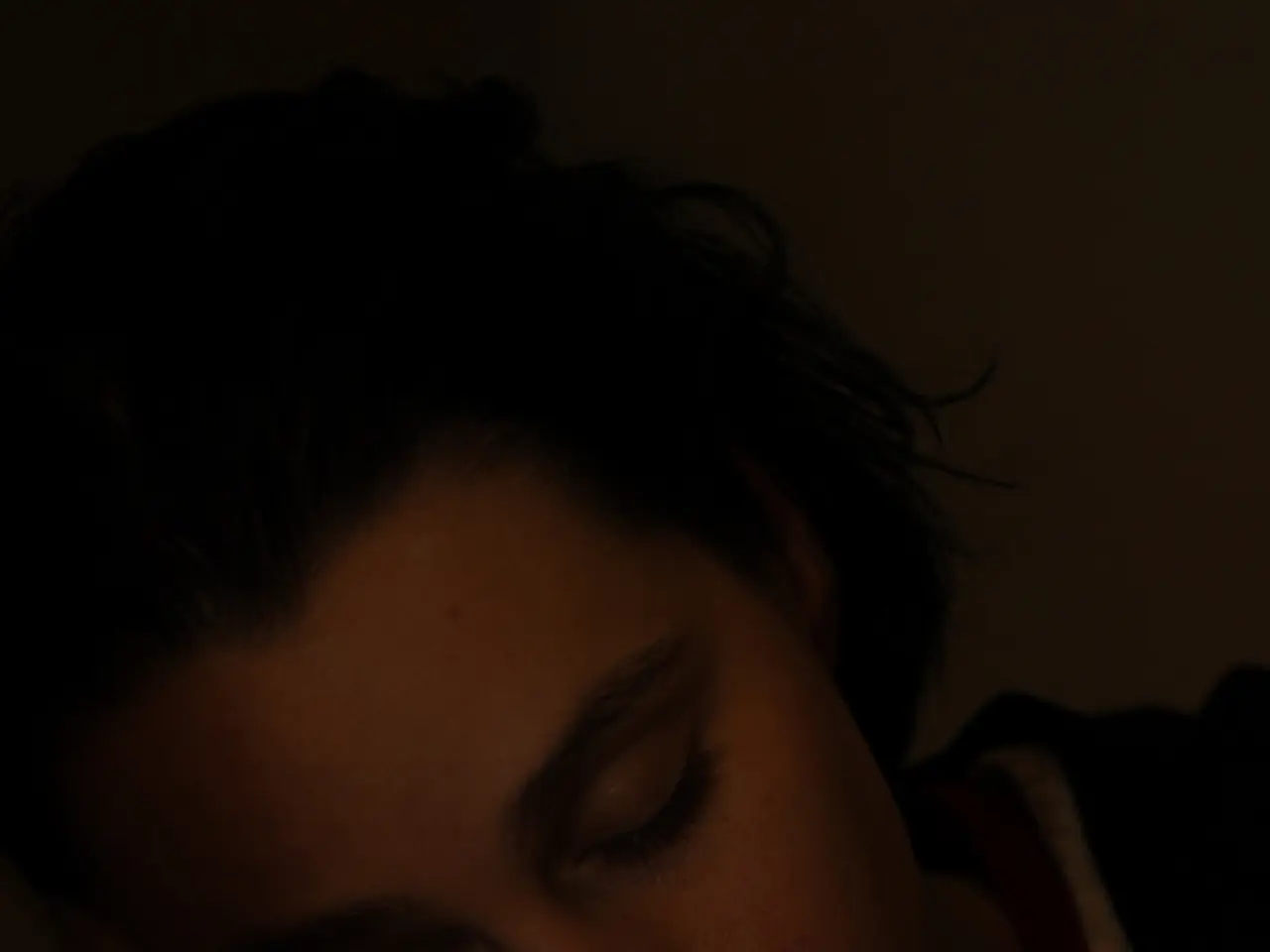Users' frequent reliance on social media platforms causing temporary 'breathlessness' in daily life due to constant notifications and FOMO (Fear of Missing Out) - "Weekend Partying Interfering with Restful Slumber": This references the disruption of peaceful rest due to weekend social events.
In a groundbreaking study published in the journal "American Journal of Respiratory and Critical Care Medicine", a team of researchers from Flinders University in Australia has identified a new form of sleep disorder known as "Social Apnea" or social sleep apnea. This sleep disorder is characterised by an increase in the severity of obstructive sleep apnea (OSA) over the weekend, largely driven by lifestyle factors such as late nights, alcohol consumption, smoking, and irregular sleep patterns.
The study, which analysed data from over 70,000 people worldwide, found that the odds of moderate to severe OSA were generally 18% higher on Saturdays compared to midweek days like Wednesdays. Among adults under 60 years old, the increase in OSA severity was even more pronounced, with a 24% increase observed on weekends.
Key correlations in the study include alcohol consumption, weekend activities, gender, and age. Weekend drinking is linked to exacerbation of OSA severity, likely because alcohol relaxes throat muscles, worsening airway collapse during sleep. Sleeping in longer on weekends disrupts sleep schedules and leads to irregular sleep patterns, which strongly correlate with intensified OSA. Sleeping in 45 minutes or more is associated with a 47% increased risk of worse sleep apnea, and one hour or more of social jet lag raises the risk by 38%.
The effect of social apnea appears to be stronger in men than women, potentially reflecting differences in baseline OSA prevalence or lifestyle patterns. The studied population was predominantly male (81%). Younger adults (under 60) show a greater relative increase in weekend OSA severity compared to older adults.
The study's lead author, Lucia Pinilla from the FHMRI Sleep Health research centre, stated that the true extent of sleep apnea may have been underestimated. Men were affected significantly more often (21%) than women (9%). It is worth noting that the study participants likely had a higher health consciousness due to voluntarily purchasing the sleep sensor.
The researchers warn that the true impact of sleep apnea may be underestimated, which is concerning given OSA's links to serious conditions such as heart disease, depression, dementia, extreme fatigue, and increased risk of accidents. In light of these findings, it is recommended to maintain a consistent sleep schedule, even on weekends, to avoid "social apnea". Aiming for seven to nine hours of restful sleep per night is ideal.
In summary, social apnea highlights how lifestyle behaviors on weekends, particularly alcohol use and irregular sleep, significantly worsen sleep apnea severity, especially among men and younger adults. This underscores the need for revised diagnostic approaches and greater awareness of weekend sleep health impacts.
[1] Pinilla, L., et al. (2022). Social apnea: A weekend increase in the severity of obstructive sleep apnea. American Journal of Respiratory and Critical Care Medicine. [2] Flinders University. (2022). New sleep disorder 'Social Apnea' identified in Australian study. ScienceDaily. [3] National Sleep Foundation. (2022). What is obstructive sleep apnea? [4] American Academy of Sleep Medicine. (2022). Obstructive sleep apnea. [5] Mayo Clinic. (2022). Obstructive sleep apnea.





